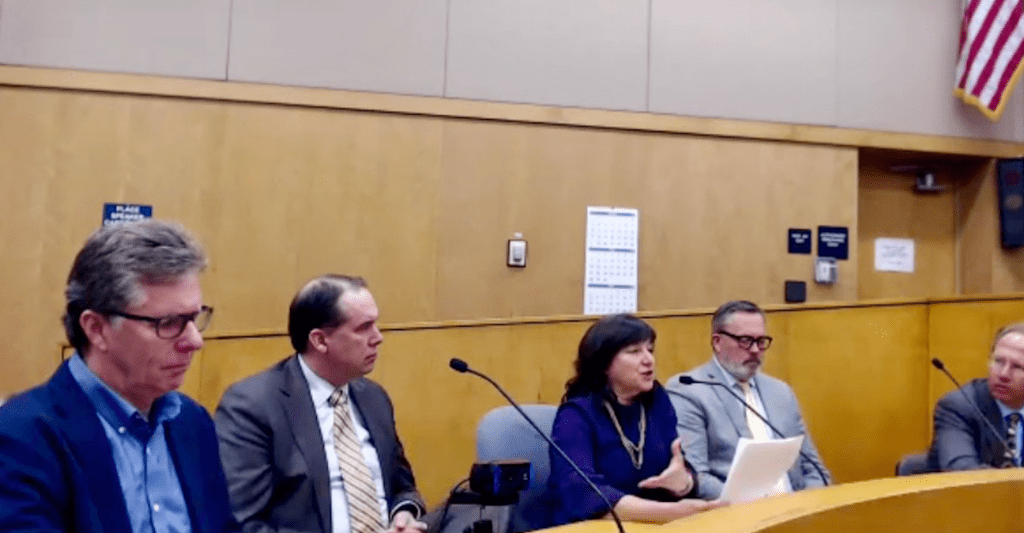

Insurance remains a critically important source of disaster recovery financing for individuals, businesses, and government, but insurers must do a better job at insuring homes to value and paying benefits in a timely manner, UP Co-Founder and Executive Director Amy Bach told a high-level California Commission yesterday in Santa Rosa, CA. Further, a recent attempt by at least one insurer to change their policies to limit payouts for wildfires and wildfire smoke and ash are illegal and must be nipped in the bud, Bach informed the Commission, providing them with a copy of a recent “reduction in coverage” notice issued by Farmers Insurance Company that improperly limits what the policy will pay in the event of a wildfire.
California law specifically prevents insurance companies from selling home insurance policies that offer less coverage than what is prescribed in the Standard Form Fire Policy contained in CA Insurance Code section 2071. The wording change in the reduction of coverage notice runs afoul of the standard form.
Co-founder and Executive Director Amy Bach was on an expert testimony panel at the Commissioner’s hearing along with Joel Laucher, Chief Deputy Commissioner, CA Department of Insurance, Rex Frazier, a lobbyist representing the Personal Insurance Federation and the National Association of Mutual Insurance Companies, Tom Welsh, General Counsel for the CA Earthquake Authority, and an actuary employed by Milliman Consulting who is based in Florida. For more information about the Commission’s charge, click here.
Representatives of PG&E and public officials also testified, including Sonoma County Supervisor Susan Gorin (who also lost her own home in the 2017 wildfires), and James Gore, along with impacted local residents and a Butte County resident who lost her home in the Butte Fire and holds PG&E responsible.
California considers adding state catastrophe fund to help homeowners in risk areas afford insurance
